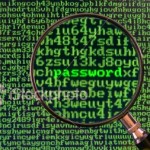The oft-repeated aphorism “one man’s terrorist is another man’s freedom fighter” could easily be applied to the world of computer hacking.
Just as spray-painted graffiti can represent either a mindless act or a political statement, the take-down of websites and theft of user information means different things to different people.
The subjective nature of what these shadowy troublemakers get up to is exemplified by the use of the term “hacktivist”.
Anonymous and Lulz Security – two of the highest profile groups at work today – sail under this flag.
“There has always been a streak within hackerdom of ideology mixed with technology,” says Peter Sommer, author of the seminal 1980s text The Hacker’s Handbook.
The hacker, explains Mr Sommer, is distinct from the cyber-criminal, whose motivations are generally larceny and whose relationship with technology is akin to the housebreaker’s relationship to the jemmy – it is a tool of the trade.
Hackers are interested in the mechanism of attack as much as they are in the target.
“One strong element in hacking is seeing how things work. Here is a technology, can I make it do something else?” says Mr Sommer.
That love of technological innovation, and the internet in particular, gives rise to a philosophy.
– More… ➡
